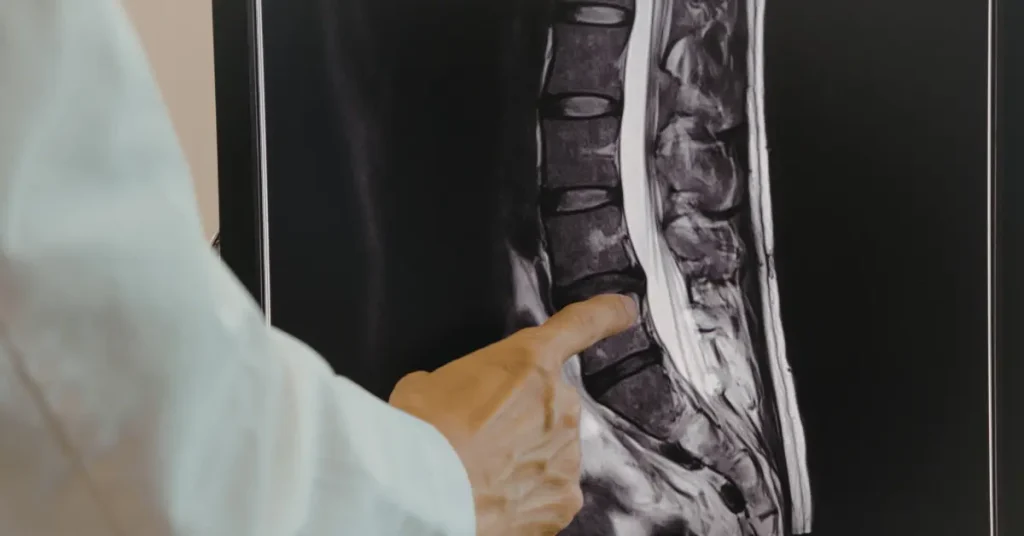Compensation for Firefighters and Emergency Medical Services
According to the Irish Fire and Emergency Services Association (IFESA), there is a huge need for a proper compensation scheme for firefighters injured in the line of duty, particularly as a result of attacks or vandalism which has proven rife over the last number of years.
Firefighters from Dublin and Waterford are seeking psychological support and a new compensation scheme for those injured in the line of duty. As Halloween emerges around the corner, fears for safety continue to grow as it is normally the busiest and most dangerous time of year for fire crews and other emergency services.
A study ‘Dublin Fire Brigade: Violence in the workplace and Occupational Stress in the Control Room’ showed that some 96% of staff members had experienced some form of violence during their career, with 69% physically assaulted and/or 80% violently threatened and/or 94% verbally abused in the last year. The report carried out by the Royal College of Surgeons in Ireland was divided into 2 studies, one of violence in the workplace and the other of occupational stress in the HQ Control Room and had the following key findings:
Study one: Violence in the workplace
- The data provided in the studies provided an evidence base for recommendations regarding training and organisational initiatives to improve crew safety and increase psychological well being.
- Over a third of respondents indicated that Ambulance duty was being performed when instances of physical assault occurred.
- The main source of violence was identified as the Public or a Client.
- Violence resulted in taking time off duty
- Physical assault had the most emotional impact.
- Non-reporting of violence was widespread.
- Over two fifths of respondents did not know if their employer had a formal policy/protocol of support for staff who had been assaulted.
- Many respondents used no support mechanisms following occurrences of violence and of those who did, the most commonly used were only to discuss the incident with a colleague or partner/family member or a friend.
- The majority of respondents recognised the need for and the importance of training. However, in the management of potentially violent individuals, 83% indicated that they had never received training and 39% indicated that they were not confident in using physical intervention or verbal intervention skills.
Study two: Occupational Stress in the HQ Control Room
- Nearly half of Control Room personnel reported having high levels of psychological distress at the time of study.
- There was a positive correlation between the number of sick days taken and level of psychological distress.
- The primary sources of stress included substandard equipment, sleep disturbance, worries over reductions in personnel and wage levels and abuse of the Ambulance system by the public.
- The majority of HQ Control Room staff reported feeling ‘used up at the end of a work-day’ and reported that their job made them ‘feel exhausted at the end of a work-day.’
The study concluded by making the following recommendations:
- Prescriptive strategies can generally be differentiated into proactive and reactive approaches.
- Working with people in stressful and potentially stressful occupations requires clear guidelines and comprehensive policies which should most importantly translate into applications that make a practical difference.
- Violence in the workplace should be addressed not as an isolated individual problem but as a structural strategic problem rooted in social, economic, organisational and cultural factors including:
– violence recognition
– risk assessment
– intervention
– monitoring and evaluation
Such policies though run the risk of becoming aspirational documents rather than operational and carefully considered commitments to specific courses of action that reflect the contemporary state of best practice.
The Dublin Fire Brigade is the only fire-based emergency medical service in Ireland and Great Britain where fire-fighters and paramedics play a dual role as cross-trained personnel. (90% of US cities are fire-based Emergency Medical Support providers because of the capability to achieve response times of four minutes or less with the same dual-role cross-trained personnel as well as cost savings from one service).
Until something is inserted into legislation, attacks on emergency personnel will sadly continue. Unlike the Gardaà Sióchana who have their own compensation scheme, other emergency personnel have no similar initiatives in place. Compensation may not be the ultimate solution, but it should be there when prevention has failed. Dublin City Council currently employees 800 full-time firefighters.
A case in the UK of R v Secretary of State for Home Department ex parte Fire Brigades Union (1995) based in the House of Lords concerned the awarding of compensation under the Criminal Injuries Compensation Scheme. The judgement ruled that the Home Secretary acted unlawfully by not implementing a compensation scheme for firefighters and emergency medical support staff.
Undoubtedly, working in the emergency services affords a high-risk element to the job and unless preventative measures can be put in place to avoid the possibility of violence in the workplace, a compensation scheme for injuries suffered should be to the forefront of considerations.
Prison Officers’ Compensation
In stark comparison, more than €5.6m in compensation cash was paid to prison officers who were injured on the job. Figures for five years to the end of 2014 come as three prison officers were assaulted in Mountjoy Prison, two of them receiving slash wounds to the face.
Another prison officer who has had teeth knocked out when struck on the face with a plank and, in another disturbing incident, received a death threat to his family from one the capital’s most notorious killers.
The payouts were for dozens of incidents that arose causing harm to prison staff, including injury as a result of assault, stabbing, arson, being bitten by inmates and being exposed to saliva and blood.
Deputy General Secretary of the Prison Officers Association (POA) Jim Mitchell pointed out that as well as suffering physical injuries, warders are also left emotionally affected by the job.
One of the officers hurt in the most recent incident in Mountjoy may require specialised surgery to heal the wounds he received.
Compensation payments to prison officers come to €5,660,160 for the five years 2010 to 2014 with €977,718 paid out last year alone.
“Although the compensation figure looks quite high it doesn’t reflect the severity of the injuries prison officers suffer,” the POA’s Mr Mitchell said. Â “Most commonly they would incur injuries from assaults, intervening in fights and also the classic example of attempting to save a prisoner from being attacked,” he explained.
“There are also scenarios that can have a mental and emotional affect on staff, such as discovering a prisoner in a cell who has died by suicide or from an overdose,” he added.
Mr Mitchell described Ireland’s prisons as a “difficult environment to work in” and added that there is “no other job like it”.
There were 154 attacks in 2013 alone with 49 in St Patrick’s Institution and 34 in Mountjoy. There has been a number of high profile incidents in recent months.
Compensation Scheme for Psychiatric Nurses
Back in 2009, settlement terms through the Labour Commission were reached to allocate compensation to psychiatric nurses for physical and psychological injury. The schedule of benefits payable under the scheme, are as follows:
- Death €25,000
- Loss of two or more limbs or both eyes or one of each €100,000
- Loss of sight in one eye €30,000
- Permanent and total loss of speech €100,000
- Permanent and total loss of hearing in both ears €100,000
- Permanent and total loss of hearing in one ear €30,000
- Permanent and total loss of use of one limb €75,000
- Permanent and total loss of use of one big toe €12,500
- Permanent and total loss of use of any other toe €10,000
- Permanent and total loss of use of one thumb €20,000
- Permanent and total loss of use of one forefinger €12,500
- Permanent and total loss of use of any other finger €10,000
- Permanent and total loss of use of one hand €30,000
- Permanent and total loss of use of shoulder or elbow or wrist €20,000
- Permanent and total loss of use of hip or knee or ankle €20,000
- Total loss of use of back or spine (excluding cervical) without cord involvement €30,000
- Total loss of use of neck or cervical spine without cord involvement €30,000
- Removal by surgical operation of a kidney €20,000
- Quadriplegia €100,000
- Paraplegia €100,000
- Fracture to leg or arm €12,500
- Fracture to hand €10,000
- Fracture to skull €12,500
- Fracture to cheek or nose or jaw €10,000
- Fracture to vertebrae €12,500
- Fracture to rib or sternum €7,500
- Fracture / dislocation to hip or pelvis €12,500
- Bodily injury resulting in treatment requiring sutures €5,000
- Dislocation of shoulder or arm or elbow or wrist €10,000
- Dislocation of thumb or finger €5,000
- Dislocation of knee or ankle €12,500
- Dislocation of foot €7,500
- Dislocation of big toe or toe €5,000
- Burns or scalds to any area apart from the face requiring hospitalisation €6,000
- Bite injuries resulting in medical treatment €7,500
- Contusion or haematoma or laceration to spleen €10,000
- Contusion or haematoma or laceration to heart €10,000
- Contusion or haematoma or laceration to bowel or digestive system €10,000
- Contusion or haematoma or laceration to bladder €7,500
- Contusion or haematoma or laceration to kidney €12,500
- Contusion or haematoma or laceration to lung €10,000
- Crushing injury to foot €5,000
- Crushing injury to hand €5,000
- Crushing injury as dermed by (WHO ICD) €10,000
- Hernia €5,000
- Permanent total disablement from gainful employment of any and every kind €100,000
Claims Procedure for Psychiatric Nurses Compensation
The claims procedure for the scheme is consistent with that already in place for other types of insurance claims under HSE insurance policies. Â The various stages of procedure in such eventuality are:
- Claim notified by employee to HSE
- HSE notify the Irish Public Bodies Mutual Insurances Ltd (IPB)
- IPB issue claim form to HSE
- Claim form completed by injured employee
- Medical Certificate section of claim form completed by employee’s doctor
- Completed claim form returned to HSE
- HSE forward claim form to IPB
- IPB validate claim and issue cheque.
All of the aforementioned professions involve high-risk practices and it is hoped that soon the Emergency Medical Support services will be afforded the same opportunities for compensation if not the preferable successful prevention of further injury and suffering.




